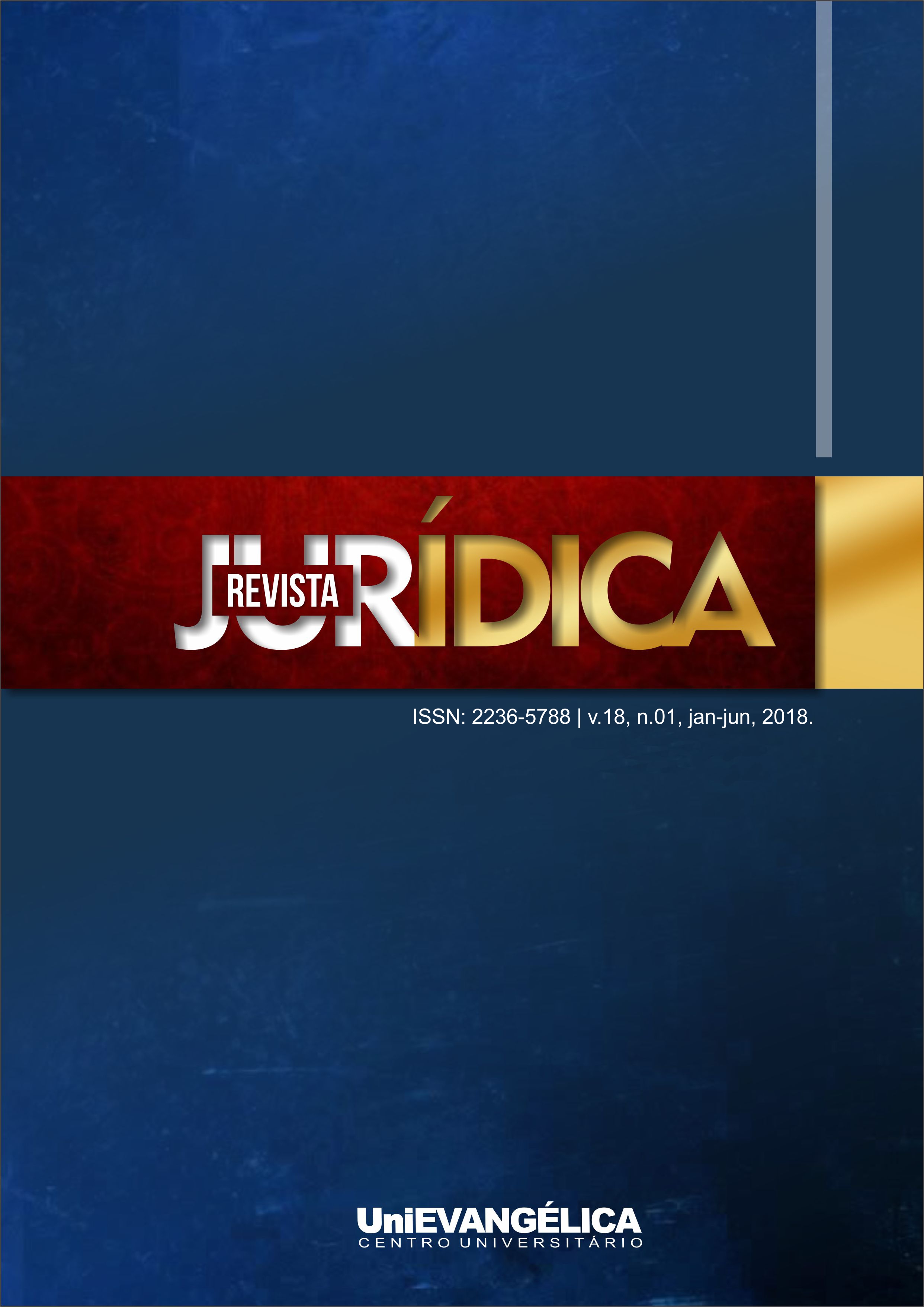Óbices No Combate Ao Crime De Lavagem De Dinheiro
DOI:
https://doi.org/10.29248/2236-5788.2018v18i1.p111-144Palavras-chave:
Análise Jurisprudencial do Crime de Lavagem de Dinheiro; Aspectos Políticos, Econômicos e Psicossociais; Óbices; Cooperação Internacional.Resumo
Ao conjunto de problemas que chamam a atenção da comunidade internacional, há uma ponderação de interesses ilegítimos, que traduzem enormes prejuízos quando se trata de “enriquecimento ilícito”, em que o Estado é a parte lesada, como o crime de lavagem de dinheiro, no Brasil. É preciso desenvolver regras aplicáveis para a recuperação de ilícitos, apesar de se evidenciar óbices de origem jurídica, política, econômica, psicossocial, militar, tecnológica e científica, e internacional. Salienta-se que se a luta contra os ilícitos e desvios evidentes de capitais for eficiente e eficaz, este delito sofrerá significativa redução. O crime de lavagem de dinheiro é complexo, o papel da atividade de inteligência desenvolve regras aplicáveis, sobressai-se como produção de conhecimentos úteis para a tomada de decisões relativas às medidas contra tal delito. Por ser um crime de grande complexidade, a atividade de inteligência de Estado deve trabalhar no contexto de um sistema de inteligência integrado, com o objetivo de produzir conhecimentos que explorem aspectos que dificultam o combate à lavagem de dinheiro. Ressalte-se a importância de uma eficiente cooperação internacional com os países signatários de acordos internacionais referentes à luta contra o crime de lavagem de dinheiro e outros crimes com ele relacionados. Dá-se ênfase à questão de que a atividade de inteligência não somente deve priorizar o aspecto econômico, na produção de conhecimentos que subsidiam a tomada de decisão sobre as medidas adequadas para o combate à lavagem de dinheiro. Procura-se, através de uma pesquisa empírica, demonstrar que as dificuldades no combate à lavanderia de capitais são amplas e têm origens diversificadas. Análises jurisprudenciais revelam que a atividade de inteligência prioriza o fator econômico na produção de conhecimentos, mas, trabalha com outros fatores que comprometem os resultados, e afligem significativamente, a luta contra esse delito em diferentes países do mundo contemporâneo.
Referências
______________. Agência Brasileira de Inteligência. Agência Brasileira de Inteligência: “a inteligência em defesa da sociedade, do estado democrático de direito e dos interesses nacionais”. Brasília: ABIN, 2001.
_____________. COAF. O.Grupo.Egmont. Disponível.em: <https://www.fazenda.gov.br/siscoaf/portugues/sobrecoaf/egmont.htm.>Acesso.em:06/02/2008.
______________. Constituição Federal da República Federativa de 1988.
______________. Decreto nº 6540, de 19 de agosto de 2008. Altera e acresce dispositivos ao Decreto n º 4.376, de 13 de setembro de 2002, que dispõe sobre a organização e o funcionamento do Sistema Brasileiro de Inteligência, instituído pela Lei n º 9.883, de 7 de dezembro de 1999.
______________. Lei nº 6.815, de 19 de agosto de 1980. Define a situação jurídica do estrangeiro no Brasil, cria o Conselho Nacional de Imigração.
______________. Lei nº 9.034, de 03 de maio de 1995. Dispõe sobre a utilização de meios operacionais para a prevenção e repressão de ações praticadas por organizações criminosas. (já revogada pela Lei 12.850/2013)
______________. Lei nº 9.613, de 03 de março de 1998. Dispõe sobre os crimes de "lavagem" ou ocultação de bens, direitos e valores; a prevenção da utilização do sistema financeiro para os ilícitos previstos nesta Lei; cria o Conselho de Controle de Atividades Financeiras - COAF, e dá outras providências. (já alterada)
______________. Lei Complementar nº 97, de 09 de junho de 1999. Dispõe sobre as normas gerais para a organização, o preparo e o emprego das Forças Armadas.
______________. Lei nº 9.883, de 07 de dezembro de 1999. Institui o Sistema Brasileiro de Inteligência, cria a Agência Brasileira de Inteligência - ABIN, e dá outras providências.
______________, Lei nº 12.683, de 09 de julho de 2012. Altera a Lei n o 9.613, de 3 de março de 1998, para tornar mais eficiente a persecução penal dos crimes de lavagem de dinheiro.
______________. Ministério da Fazenda. Conselho de Controle de Atividades Financeiras. Disponível em: < www.mp.sp.gov.br/pls/portal/url/ITEM/196A301A263451BEE040A8CO2B014677 > Acesso em: 06 de fevereiro de 2008.
______________. Ministério da Justiça – ENCCLA. .Disponível em: <http://www.mj.gov.br/drci/data/Pages/MJ7AE041E81TEMID3239224CC51F4A299E5174AC98153FD1PTBRIE.htm > Acesso em: 16 de fevereiro de 2008.
______________. Ministério da Justiça – Recuperação de Ativos. Disponível em: < http://www.mj.gov.br/data/Pages/MJ7A4BFC59ITEMID401B422470464DA481D21D6F2BBD1217PTB.> Acesso em: 06 de fevereiro de 2008.
______________. Ministério da Justiça. Estrutura. Disponível em: <http://www.mj.gov.br/drci/data/Pages/MJ1CD69499PTBRIE.htm> Acesso em: 16 de fevereiro de 2008.
FATF-GAFI. As Quarenta Recomendações, p. 11, 20 de julho de 2003.
FINANCIAL ACTION TASK FORCE ON MONEY LAUNDERING (FATF). As Quarenta Recomendações. 26ª Recomendação, de 20 de junho de 2003.
PLATT, Washington A Produção de Informações Estratégicas. Biblioteca do Exército e Livraria Agir. Rio de Janeiro, 1994.
REVISTA CONSULTOR JURÍDICO. Crimes Financeiros. São Paulo. 24 de setembro de 2007. Disponível em: <http://conjur.estadao.com.br/static/text/59815,1>. Acesso em: 04 de março de 2008.
TZU, A Arte da Guerra. Biblioteca do Exército, Rio de Janeiro, 2003.

